Ever catch yourself rearranging the furniture at home and wonder if it’s a secret sign you swapped your extrovert badge for an introvert cloak today? Turns out, many of us are shape-shifters of personality—flipping between social butterflies and quiet hermits, depending on the cosmic vibes or, you know, the state of our Wi-Fi connection. Just because you’re an introvert doesn’t mean you’re hiding in the shadows of social anxiety or dodging every friend request. Nope. It’s often the little rituals you cherish when all is quiet that spill the real tea on your introverted side. From chatting with your pet like they’re your therapist, to basking in the glorious silence that feels like a warm hug from the universe (thank you, Mercury’s current dance), these small acts say more than a thousand words at a crowded party. Ready to peek behind the curtain and see if you’re more introverted than you thought? Brace yourself for a cozy deep dive into the 11 small, home-alone habits that quietly proclaim, “Yup, I’m an introvert at heart.” LEARN MORE.
Even though many people tend to think of themselves as vivacious extroverts or hold their introverted personality close to their chest, the truth is that many of us switch between these personalities at any given time in our lives. Some days, we’re feeling more extroverted and social; on other days, our environment pushes us closer toward an introverted mood.
Of course, just because you’re an introvert doesn’t mean you have social anxiety, hate leaving the house, or have no friends — those are the misconceptions that sometimes urge people to avoid the label. However, if you love doing these small things when you’re home alone, you’re more introverted than you think.
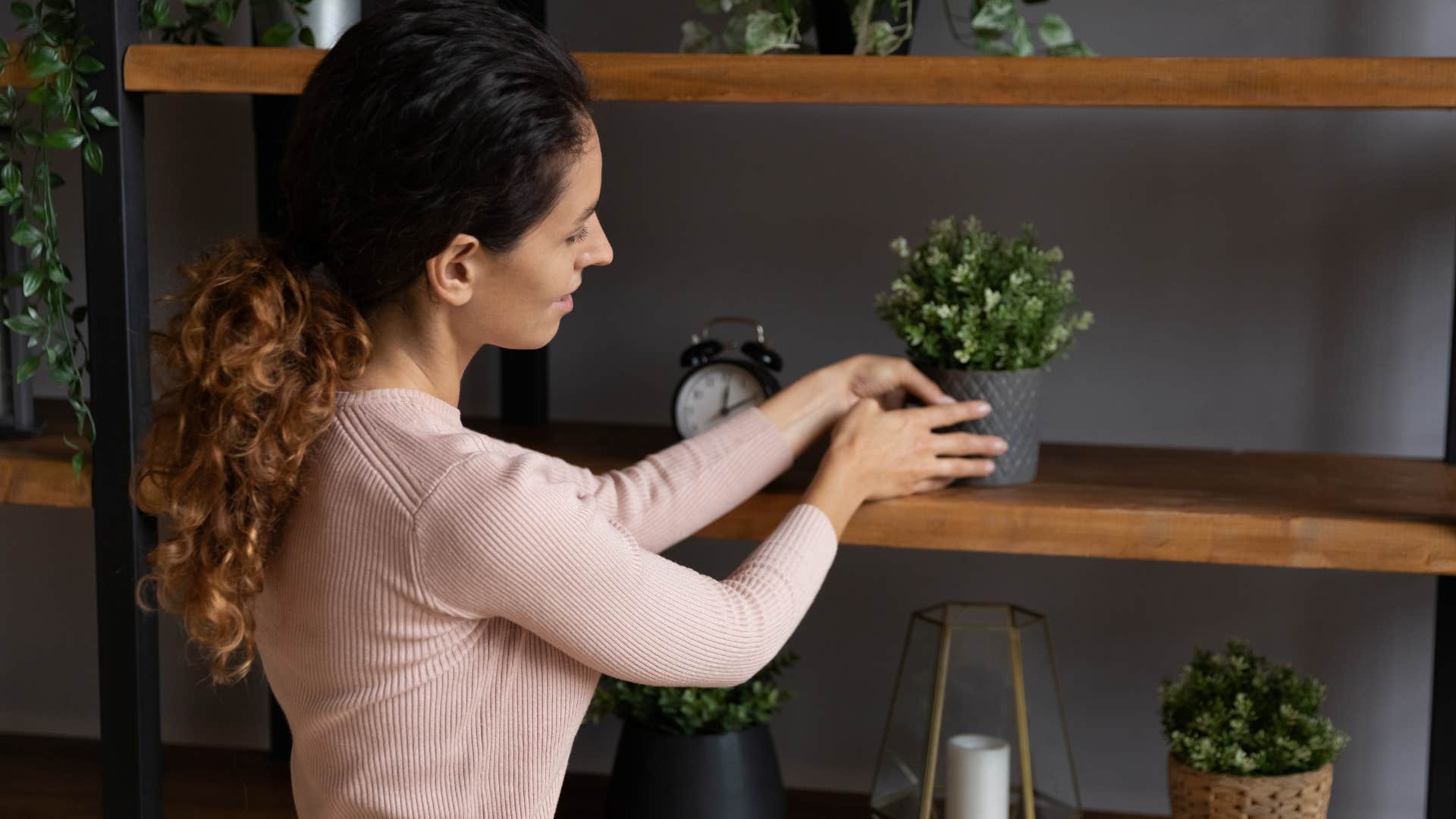 fizkes | Shutterstock
fizkes | Shutterstock
If you’ve ever been sitting at home and had a spark of motivation to rearrange all your furniture or change the set-up of your bedroom, you might be more introverted than you think. Many introverts put a lot of thought and effort into making the most of their alone time, and if it’s happening at home, they also care a lot about making it a safe and inviting space.
Like a study from Personality and Individual Differences suggests, introverts have a lower threshold for internal arousal. Even things like music or unnecessary sounds at home can often cause them a lot of distress. That’s why the comfort of their furniture and the set-up of their home make such a difference, and often is prone to changing a lot depending on an introverted person’s mood and well-being.
Advertisement
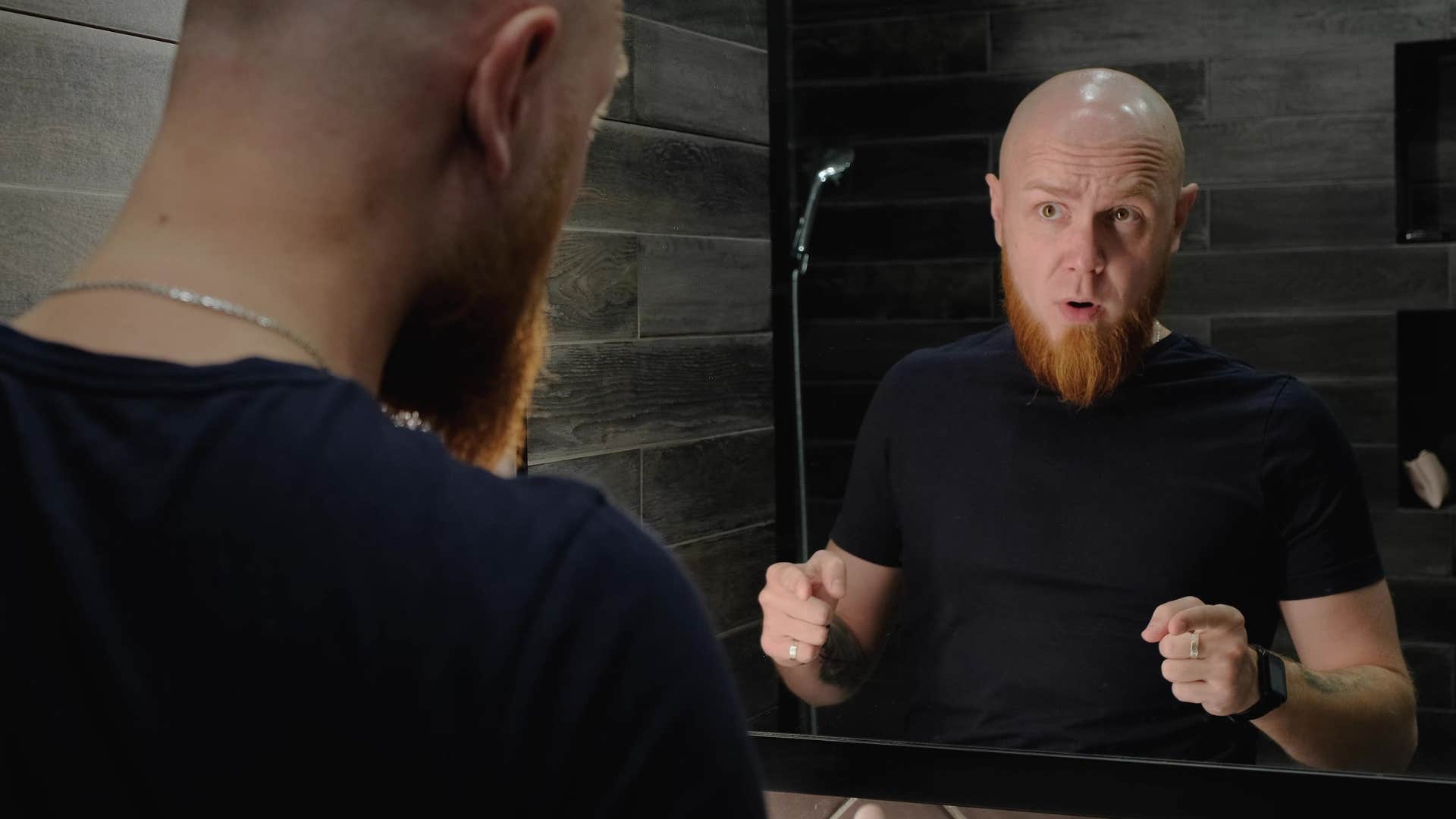 Ekaterina Soldatenko | Shutterstock
Ekaterina Soldatenko | Shutterstock
While small talk and superficial connections with people outside of their home often feel incredibly draining and nerve-wracking, according to counselor Lynne Reeves Griffin, talking to themselves at home is second nature. Not only does it often aid their self-reflection habits and introspection, but it can also feel comforting when they’re keeping themselves company at home.
Like psychology professor Tara Well suggests, talking to yourself also benefits cognitive performance, boosts confidence and self-esteem, and even reduces stress and anxiety. So, even if it feels like a passive way to fill the time or an innocent quirk in the moment, it’s an introverted practice that makes all the difference in overall well-being.
Advertisement
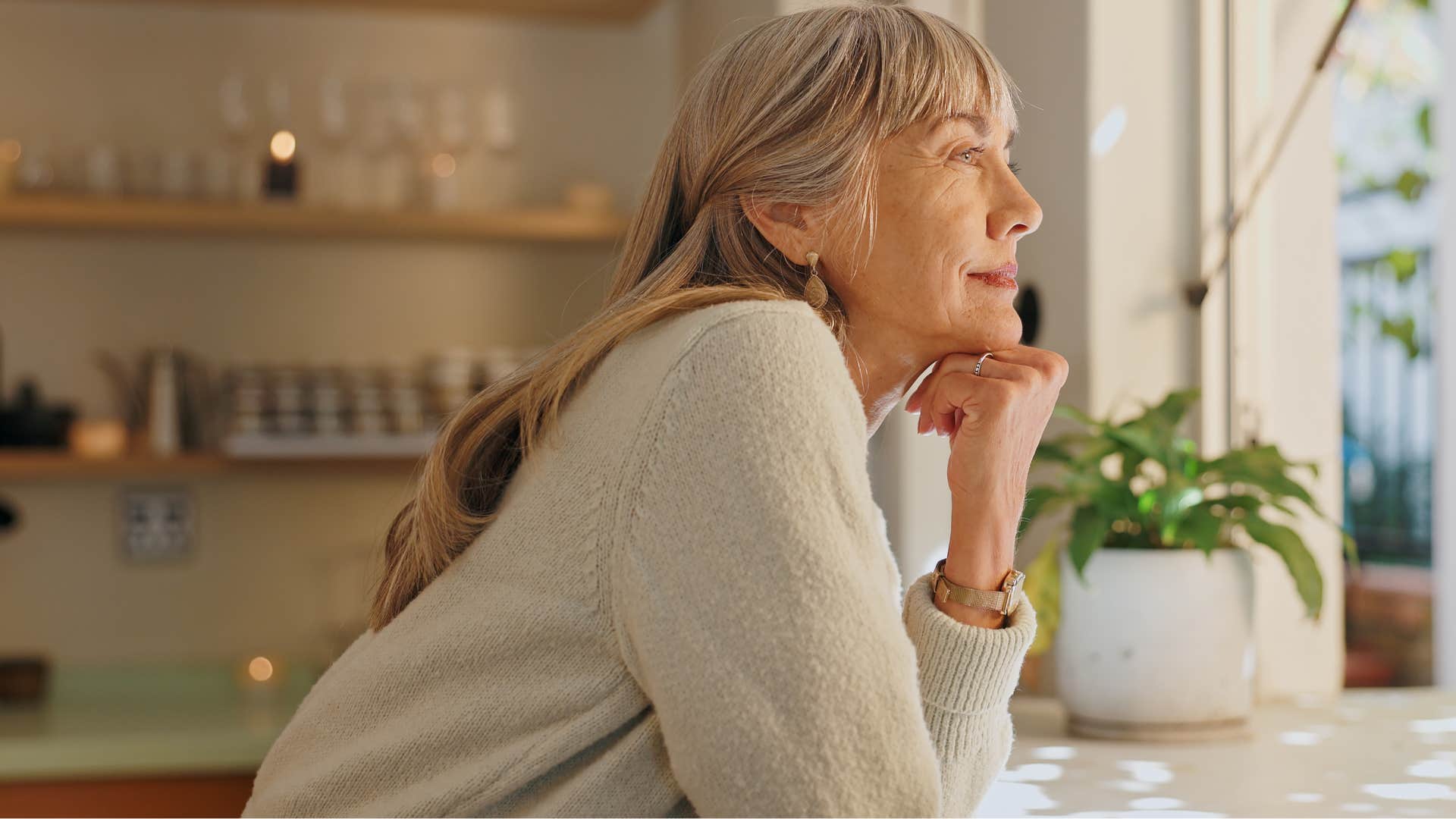 PeopleImages | Shutterstock
PeopleImages | Shutterstock
While extroverts use things like their phones, social interaction, and passive conversations with strangers to fill their silent time, often trying to avoid the introspection or reflection that comes with true solitude, introverted people love and appreciate their “peace and quiet.”
Even if it seems counterintuitive, this silence may actually be protecting introverted people from the loneliness that’s running rampant in many other people’s lives. It gives them space to recharge their social battery, connect with themselves, and regulate their emotions, so they can show up as their best selves when they leave the house and connect with their loved ones or peers.
Advertisement
 Tonuka Stock | Shutterstock
Tonuka Stock | Shutterstock
Protecting space for mindfulness, rest, and reflection at home is incredibly important for everyone’s health, but especially for introverts who tend to carry a lot of emotional burdens and stress throughout the day. They need this kind of space to recharge their social battery and get back to a comfortable baseline, both emotionally and socially.
That’s why watching comfort shows is so appealing to introverts at home, according to psychology professor Jennifer V. Fayard. Not only do they literally provide comfort, without all the anxiety-inducing twists and turns of a new show, but they also have a lower cognitive load, giving a person the chance to rest their brain.
So, if you love rewatching the same shows and movies to unwind when you’re home alone, you’re more introverted than you think.
Advertisement
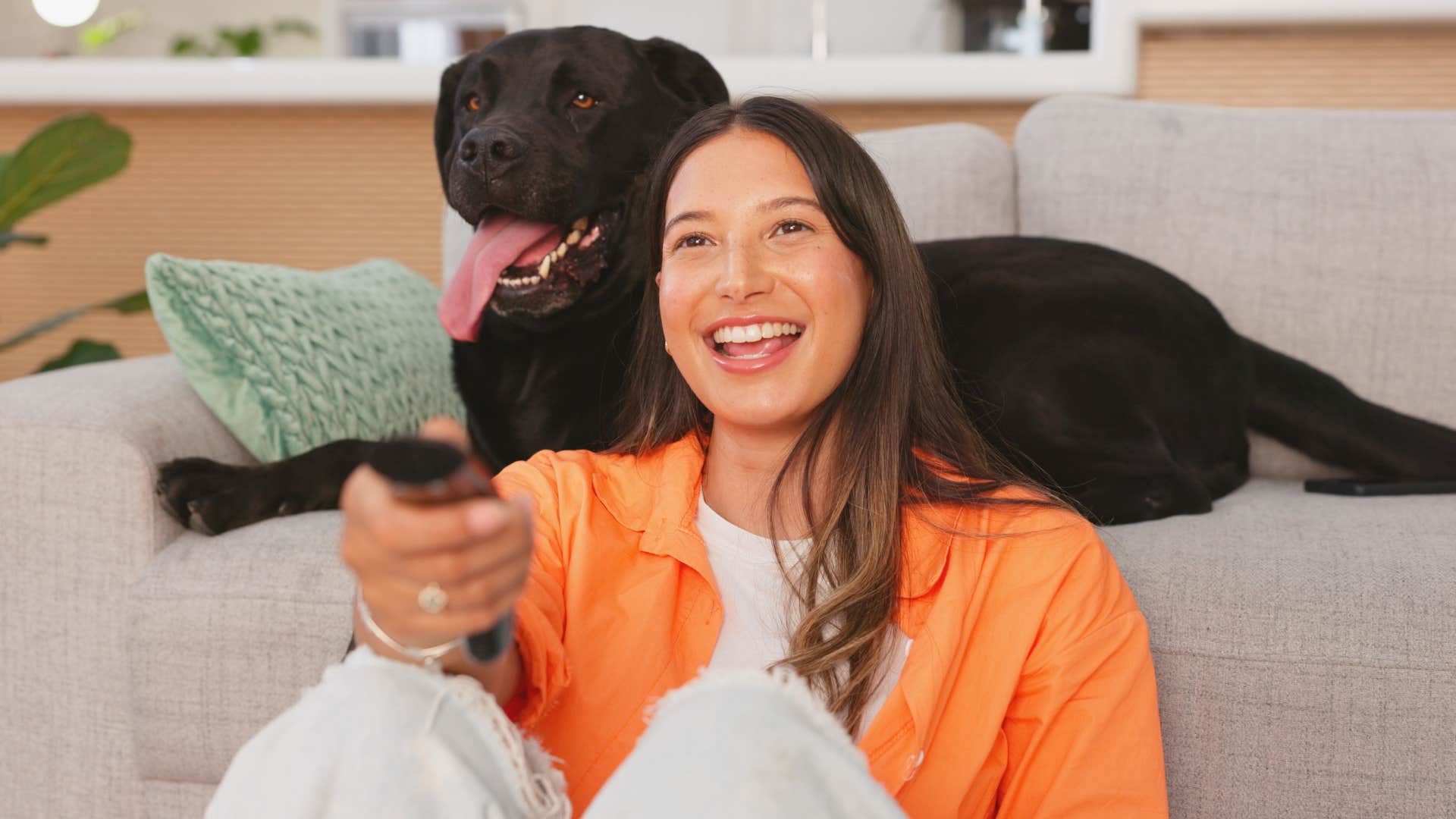 PeopleImages | Shutterstock
PeopleImages | Shutterstock
If you love talking to your pet when you’re home alone, you’re more introverted than you think. Even if it seems innocent or silly, it could be your brain’s way of coping with complexity without adding the stress of a conversation or call with a real person.
Some people may be more comfortable confiding in their pets than in their human peers, which is why this is often one of the small things introverted people do when they’re home alone. They’re not necessarily lonely or missing close friends, but sometimes, all their brains and social batteries can handle is a cozy night at home with their dogs.
Advertisement
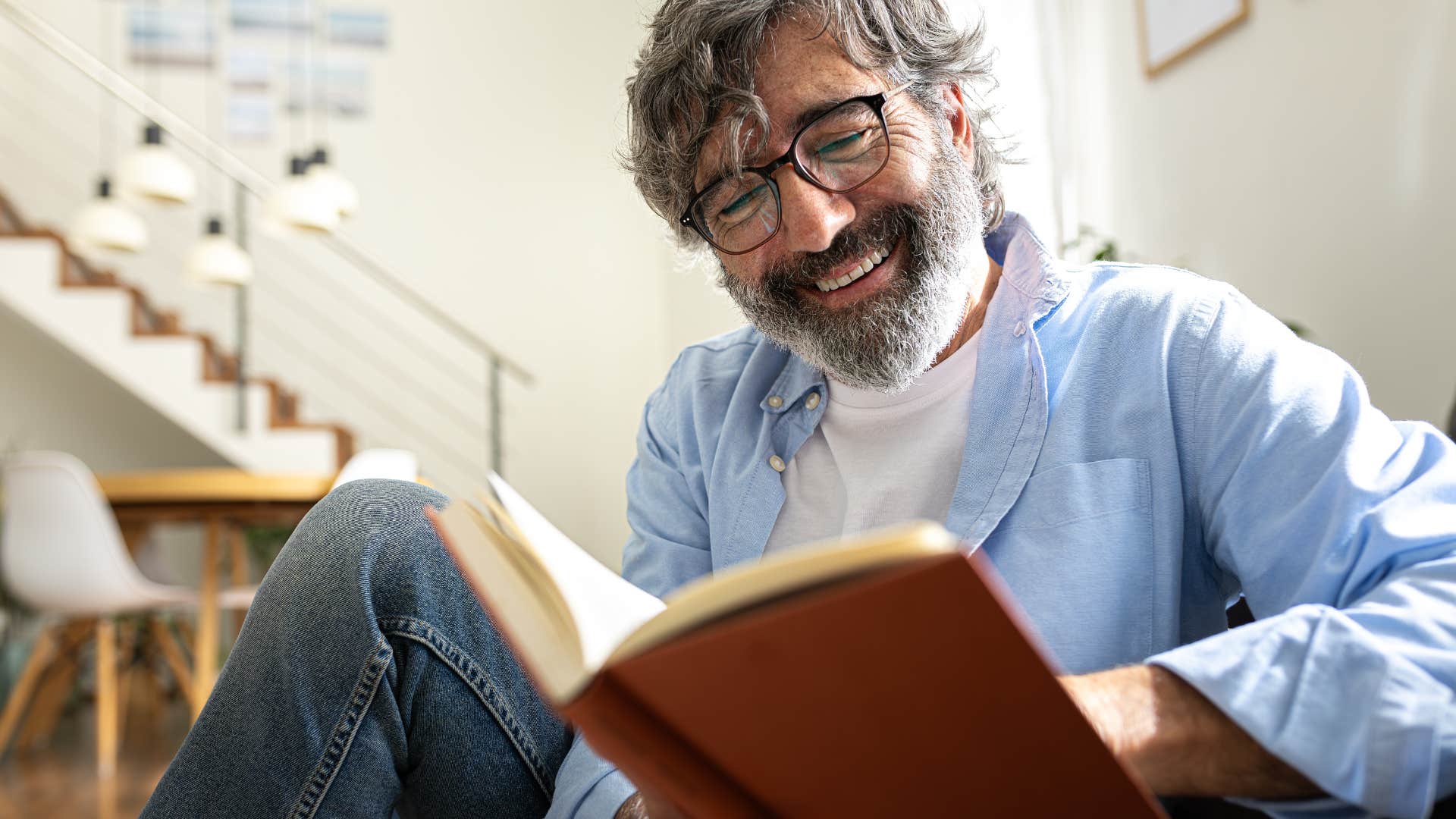 Daniel Hoz | Shutterstock
Daniel Hoz | Shutterstock
Reading often provides an opportunity to connect deeply with new perspectives, people, and emotions without ever leaving the house, which is why so many introverted people love filling their alone time at home with novels and books. They appreciate their close friends and the deep, meaningful relationships in their lives, but sometimes they prefer to seek out this kind of connection without draining their social battery to do so.
So, if you find a lot of comfort in a book or regularly lose track of time reading when you’re home alone, you could be more introverted than you think.
Advertisement
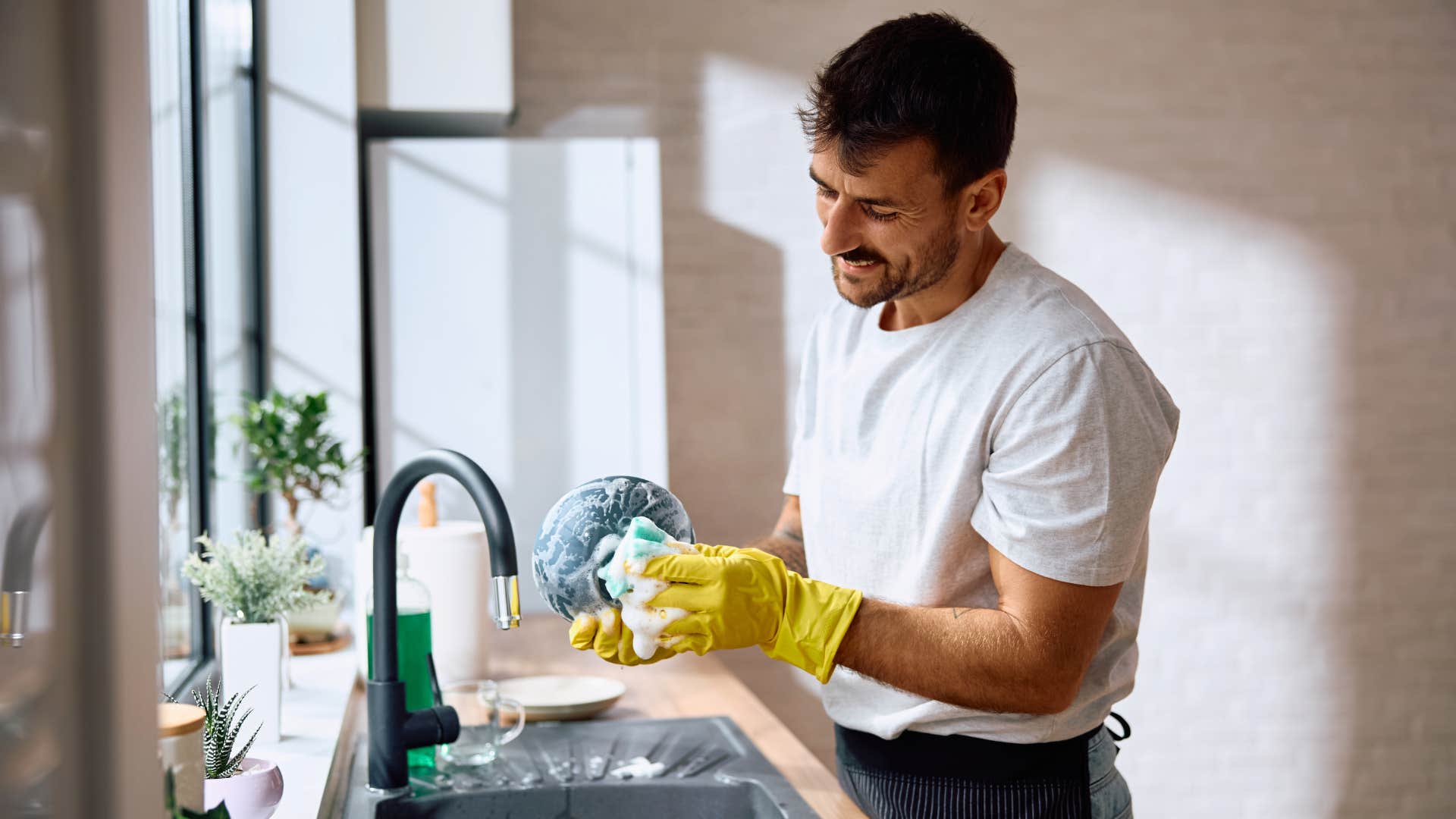 Drazen Zigic | Shutterstock
Drazen Zigic | Shutterstock
Research suggests that many introverts deal with a lot more mental chaos in their everyday lives than extroverts, who often avoid or cope with similar experiences by talking to people and connecting with others — even if that “mental chaos” isn’t necessarily good or bad.
Of course, cleanliness at home boosts our mental health and general well-being, but the actual meditative state of cleaning that many introverts engage in when they’re alone can also reduce stress levels and help them to clear out the clutter in their minds.
Advertisement
 insta_photos | Shutterstock
insta_photos | Shutterstock
Many introverted people appreciate connectedness and perspective. They may not be as extroverted as others, seeking it out from conversations and social interactions, but niche behaviors like people-watching often offer space for them to understand other people and feel connected.
That’s part of the reason why introverts often understand people better than extroverts, at least according to experts from a Yale study. They’re “natural psychologists” who find meaning in even the seemingly random and silly people-watching hobbies that fill their alone time.
Advertisement
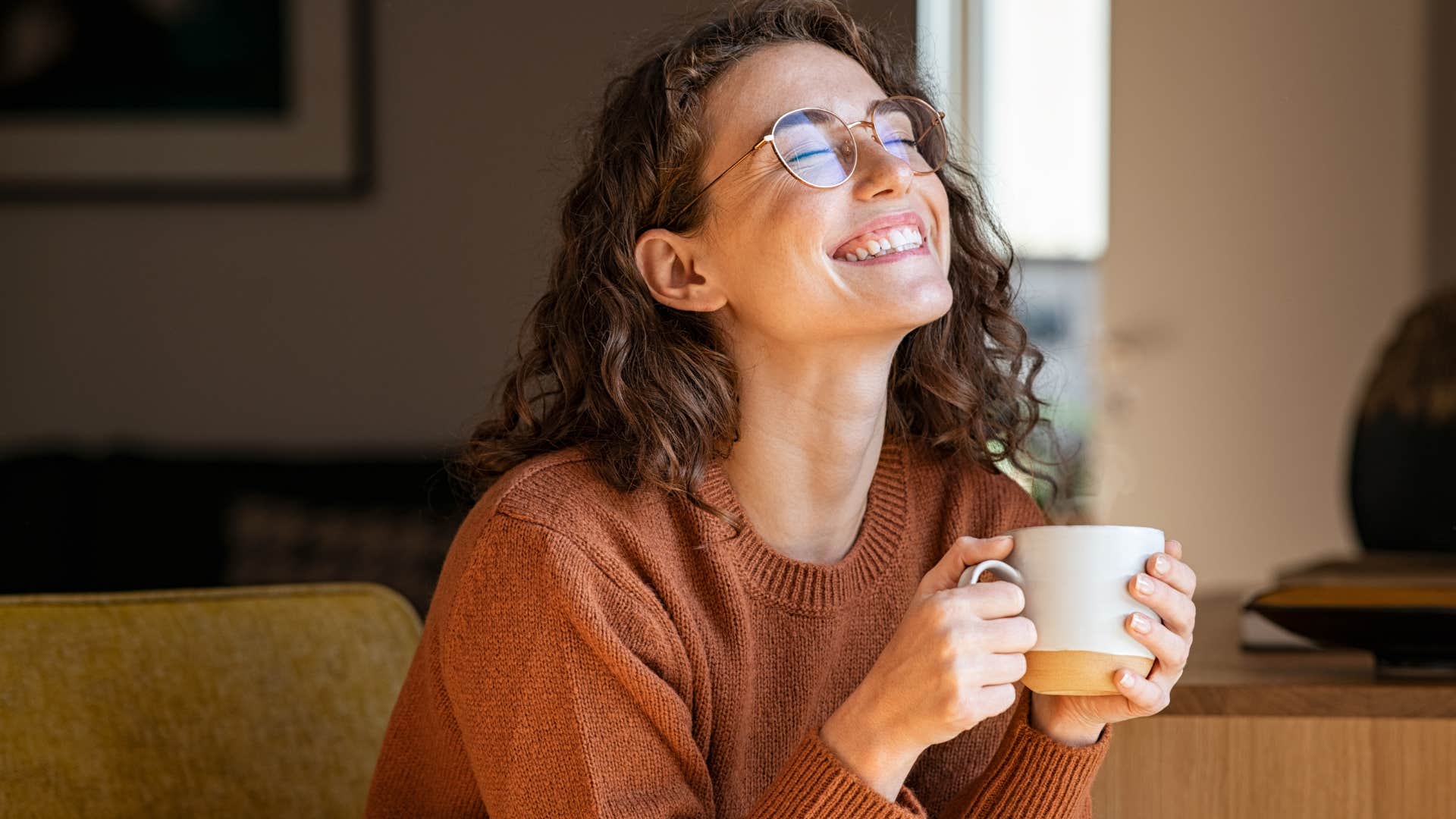 Ground Picture | Shutterstock
Ground Picture | Shutterstock
There are many reasons why both extroverted and introverted people keep their phones on silent or “DND” for long periods of time, from relieving stress, to avoiding work, and even protecting themselves from unprompted calls and texts.
Many introverted people always have their phone on DND when they’re home alone; they want to preserve the silence and solitude without interruptions from a random call or FaceTime. So, if this sounds like you, and you’re constantly trying to control the influx of communication happening on your phone, you could be more introverted than you think.
Advertisement
 PeopleImages | Shutterstock
PeopleImages | Shutterstock
Many introverted people feel full, content, and comfortable in their own company, without anyone else around. That’s why they often make time for meditation — or at least, meditative activities, like cleaning, journaling, or working out — that give them space to reflect and connect with themselves.
In fact, many introverts believe that their meditative habits have helped to calm and control the racing thoughts and “mental clutter” that they experience, recharging their social battery and protecting their well-being.
Advertisement
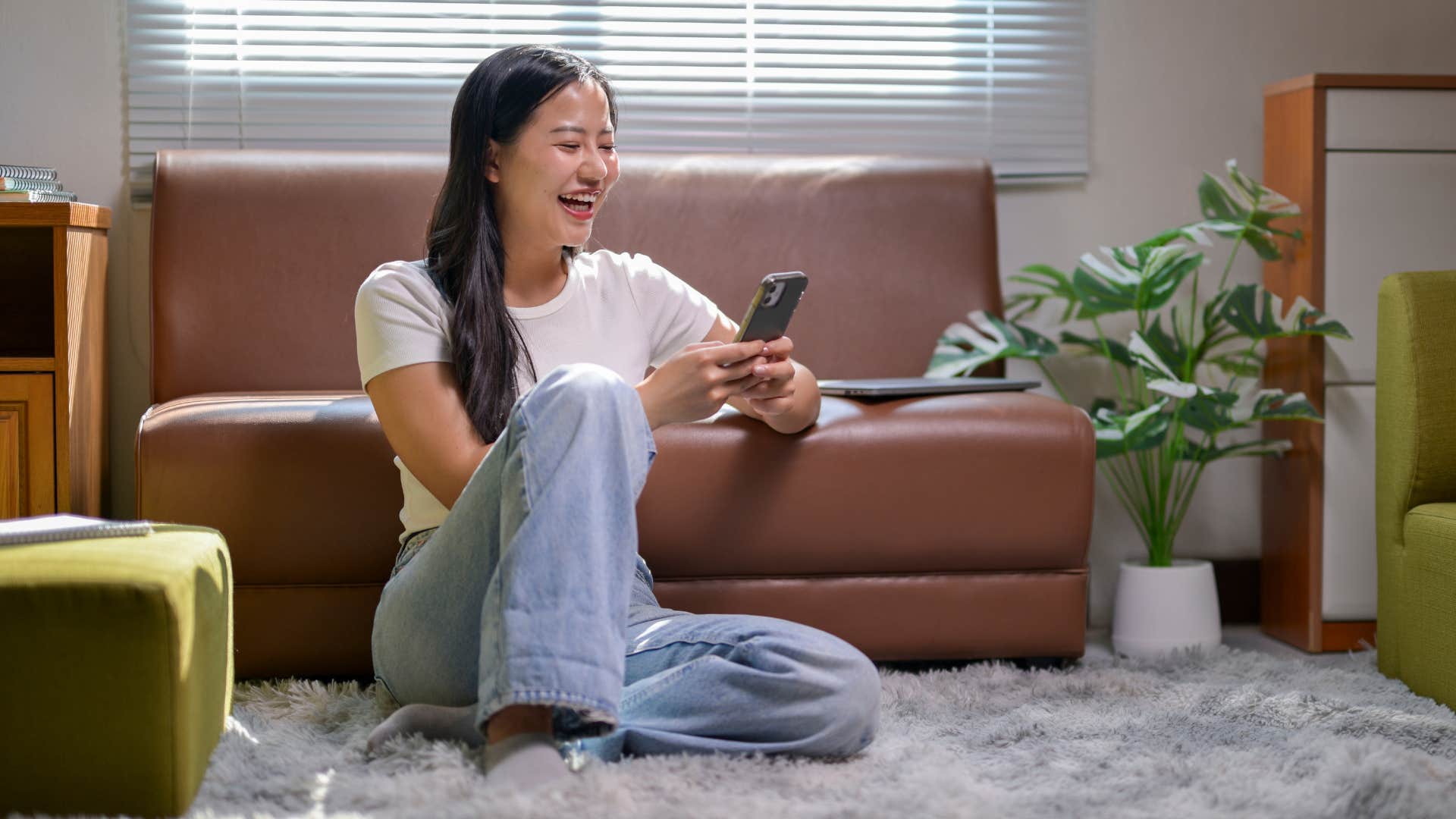 Wasana Kunpol | Shutterstock
Wasana Kunpol | Shutterstock
Many people who sit on the floor, instead of their couches or living room furniture, are introverted at heart — committing to being present in the current moment, listening to their body’s needs, and following their own needs at home.
While there are many benefits, both physically and mentally, to sitting on the floor every once in a while, it’s not always a self-care practice for introverts, just a means to reconnect and feel grounded.
Zayda Slabbekoorn is a senior editorial strategist with a bachelor’s degree in social relations & policy and gender studies who focuses on psychology, relationships, self-help, and human interest stories.
Advertisement
Auto Amazon Links: No products found.

This will close in 0 seconds
This will close in 0 seconds